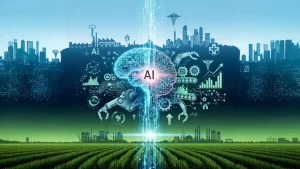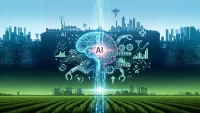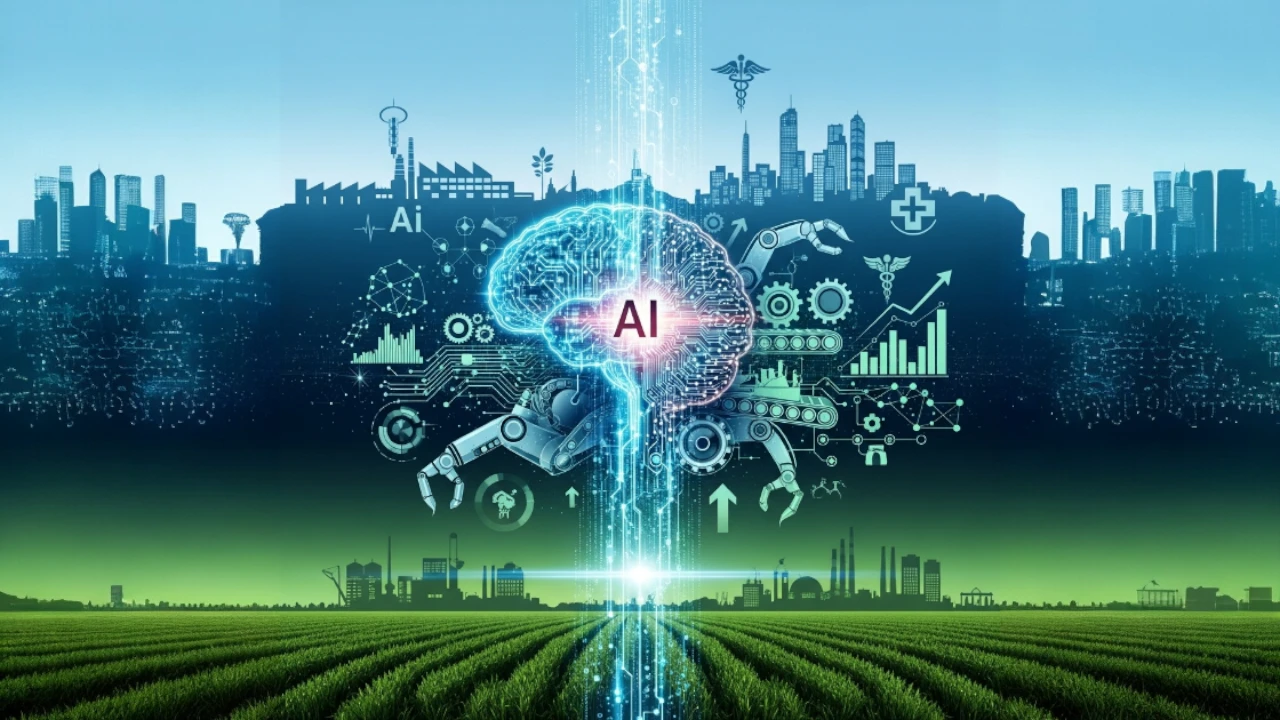Table of Contents
ToggleIntroduction
The digital marketing world is changing fast, and AI-powered insights are leading the charge. With AI, marketers can dig deeper into data, understand their audience better, and create more effective campaigns. But what exactly are AI-powered insights, and why are they so important?
What Are AI-Powered Insights?
AI-powered insights are the valuable information and patterns that AI systems extract from large amounts of data. Unlike traditional insights, which rely on manual analysis and can be time-consuming, AI can quickly process and analyze data to uncover trends and patterns that humans might miss.
Benefits of AI in Digital Marketing
Improved Data Analysis
AI can sift through vast amounts of data in no time, providing marketers with detailed analysis and actionable insights. This means you can make smarter decisions based on real-time data.
Enhanced Customer Experience
With AI, you can personalize customer interactions and experiences. AI can predict customer needs and preferences, helping you tailor your marketing efforts to each individual.
Cost Efficiency
AI can automate repetitive tasks, saving time and reducing costs. This allows marketers to focus on strategy and creative work rather than getting bogged down in data analysis and routine tasks.
AI Tools in Digital Marketing
Overview of Popular AI Tools
There are many AI tools available today that can help with various aspects of digital marketing. Some of the popular ones include Google Analytics for data analysis, Hootsuite for social media management, and HubSpot for customer relationship management.
Use Cases of AI Tools in Marketing
These tools can be used for everything from automating social media posts to analyzing customer data and optimizing ad spend. The possibilities are almost endless.
AI and Customer Insights
Understanding Customer Behavior
AI helps marketers understand how customers interact with their brand. By analyzing data from various touchpoints, AI can provide insights into customer behavior, preferences, and purchasing patterns.
Predicting Customer Needs
AI can predict what customers are likely to need or want in the future. This allows marketers to be proactive, offering products or services that meet customer needs before they even realize they have them.
AI in Content Creation
Automated Content Generation
AI can generate content such as blog posts, social media updates, and product descriptions. This can help marketers keep up with the demand for fresh content without having to spend hours writing.
Personalization of Content
AI can analyze data to create personalized content for each user. This makes marketing messages more relevant and engaging, leading to higher conversion rates.
AI in Social Media Marketing
Social Media Listening Tools
AI-powered social media listening tools can monitor brand mentions and track trends on social media. This helps marketers stay on top of what people are saying about their brand and respond quickly to any issues.
Targeted Advertising
AI can analyze user data to create highly targeted ads that are more likely to resonate with the audience. This leads to better ad performance and higher ROI.
AI and SEO Optimization
AI for Keyword Research
AI can help with keyword research by analyzing search trends and suggesting the best keywords to target. This can improve your search engine rankings and drive more traffic to your site.
Enhancing On-Page SEO
AI can analyze your website and suggest improvements for on-page SEO, such as optimizing meta tags, headers, and content structure.
AI in Email Marketing
Personalized Email Campaigns
AI can analyze customer data to create personalized email campaigns that are more likely to engage recipients. This can lead to higher open and click-through rates.
Optimizing Send Times
AI can determine the best times to send emails to maximize engagement. This ensures your emails are seen by recipients at the right time.
AI in Paid Advertising
Real-Time Bidding
AI can automate the bidding process for online ads, adjusting bids in real-time to maximize ad performance. This ensures you get the best possible return on your ad spend.
Ad Performance Analysis
AI can analyze the performance of your ads and provide insights on how to improve them. This helps you make data-driven decisions and optimize your ad campaigns.
Challenges of AI in Digital Marketing
Data Privacy Concerns
With AI relying heavily on data, there are concerns about data privacy and security. Marketers need to ensure they are complying with data protection regulations and using data responsibly.
Dependence on Data Quality
AI is only as good as the data it’s fed. Poor quality data can lead to inaccurate insights and ineffective marketing strategies. It’s important to ensure your data is clean and reliable.
Future Trends in AI and Digital Marketing
AI-Driven Chatbots
AI-driven chatbots are becoming more sophisticated, offering personalized and efficient customer service. This trend is expected to continue, with chatbots playing a bigger role in customer interactions.
Voice Search Optimization
With the rise of voice-activated devices, optimizing for voice search is becoming increasingly important. AI can help with this by analyzing voice search data and providing insights on how to optimize content for voice queries.
Case Studies of AI in Digital Marketing
Successful Implementation Examples
Many companies have successfully implemented AI in their marketing strategies. For example, Netflix uses AI to recommend shows and movies to users, while Amazon uses AI to suggest products based on browsing history.
Lessons Learned from Failures
Not all AI implementations are successful. It’s important to learn from failures and understand the reasons behind them. This can help you avoid similar pitfalls in your own AI initiatives.
How to Start Using AI in Your Marketing Strategy
Steps to Integrate AI
Start by identifying areas where AI can add value to your marketing efforts. Then, choose the right tools and platforms to implement AI. Finally, train your team on how to use these tools effectively.
Choosing the Right AI Tools
There are many AI tools available, so it’s important to choose ones that fit your needs and budget. Consider factors such as ease of use, scalability, and support when making your decision.
Conclusion
AI-powered insights are transforming digital marketing, offering new ways to understand and engage with customers. By leveraging AI, marketers can create more effective campaigns, improve customer experience, and achieve better results. As AI continues to evolve, it will open up even more opportunities for innovation in digital marketing.
FAQs
What are AI-powered insights?
AI-powered insights are valuable information and patterns extracted by AI from large datasets, providing deeper understanding and actionable data for marketers.
How can AI improve customer experience?
AI can personalize interactions, predict customer needs, and offer tailored recommendations, enhancing overall customer satisfaction and engagement.
Are there any risks to using AI in marketing?
Yes, data privacy concerns and the need for high-quality data are significant risks. It’s important to use AI responsibly and ensure data accuracy.
What is the future of AI in digital marketing?
The future includes more advanced AI-driven chatbots, voice search optimization, and continued improvements in personalized marketing and data analysis.
How do I start incorporating AI into my marketing strategy?
Begin by identifying areas where AI can be beneficial, select appropriate tools, and train your team to use them effectively.
I hope you are having a wonderful day! I have a small favor to ask. I’m aiming to rank in the top 10 on the ChatGPT store, and I can’t do it without your amazing support. Could you please use my GPT [























